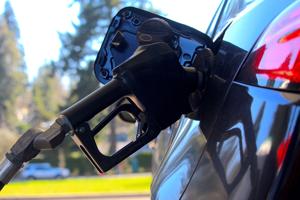Low-carbon fuel bill passes Washington House, critics claim higher fuel prices ahead

(The Center Square) – Washington’s road to a carbon-free 2050 may depend on mandating cleaner gas, but opponents say stricter fuel standards could amount to more pain at the pump for drivers.
On paper, wiping away the state’s carbon footprint hinges on a host of strategies. For Washington Democrats, they include putting more electric cars on the roads, keeping new gas hogs off them in 2030, electrifying public transit, and hiking Washington’s gas tax to maintain the freeways.
The catch? Washington drivers will still be putting gas into their cars for years to come. Enter House Bill 1091.
Introduced at the request of Gov. Jay Inslee, HB 1091 would bring Washington in line with Oregon, California, and British Columbia’s Clean Fuels Programs (CFPs) to lighten its CO2 load, of which transportation makes up 20%, as it transitions to electric transit.
CFPs set low-carbon fuel standards by blending carbon-rich fuels like gasoline with less toxic pollutants. These market-driven programs operate through a credit system to gauge compliance and each credit is based on the grams of CO2 emitted by a vehicle.
Parties regulated by CFPs, from fuel importers and automakers, can buy their way out of non-compliance by trading credits with compliant companies for a price, a practice that’s made electric automakers like Tesla very rich.
Oregon set up their program in 2009 with the goal of cutting down the carbon in its fuels by 10% by 2025. In 2015, the baseline for its fuel standards were 10% ethanol mixed with gasoline and 5% biodiesel blended with diesel.
Washington’s proposed $2 million program requires a 10% reduction in carbon intensity compared to 2017 levels by 2028 and 20% below 2017 levels by 2035. It excludes construction vehicles, timber transports, and farm vehicles through 2028. An approved substitute bill added trains, planes, boats, and exported fuel to that list.
HB 1091 makes up a critical part of Inslee’s besieged 30-year green energy plan, and backers see it as a stop-gap measure to get the state to its energy goal by the middle of the century.
“We need more fuel efficient cars, we need cleaner fuel, we need more transit and mobility, we need investments in a cleaner transportation infrastructure,” said Cliff Traisman, a lobbyist for Washington Conservation Voters. “The short answer is that we need it all.”
On Saturday, HB 1091 passed the House by a 52-46 vote following debate on 25 amendments, six of which passed the Democratic-controlled chamber.
One from state Rep. Matt Boehnke, R-Kennewick, would establish CFP credits to put towards broadband investments and remote work. Another from state Rep. Mark Klicker, R-Walla Walla would add CFP credits for nonprofits and public agencies.
The biggest loser on Sunday was an amendment from State Rep. Jacquelin Maycumber, R-Republic, which would have required the state to award CFP credits on the basis of whether a fuel came from a nation which met federal labor standards.
Since its first hearings in January, HB 1091 has split hairs with critics over the prospect of raising fuel prices if it imitates its West Coast neighbors.
Oil and shipping companies including British Petroleum America, the Western States Petroleum Association, and Washington’s Oak Harbor Freight point to a 2019 Puget Sound Regional Transportation Fuels study which estimates CFPs could raise gas prices by 57 cents per gallon under a worst case scenario.
“The impacts of this bill won’t be spread evenly on all Washington drivers,” said state Rep. Drew Stokesbary, R-Auburn. “The impacts will be disproportionately passed on to those in the working and lower-income classes.”
Those fears have technically been proven true in Oregon where gas prices have risen less than three cents, according to data from the Oregon Department of Environmental Quality. It also cut out an estimated 1.2 million tons of CO2.
CFP supporters also contend that tax incentives, more public transit, and green energy investments will work together to help wean consumers off of gas.
In January, Stu Clark, policy advisor at the state Department of Ecology, made an unsubstantiated claim to the House Environment Committee that CFPs have incurred, “no price spikes, no fuel disruptions, or any unintended consequences.”
Others say there is no need to set new fuel standards when automakers are ahead of the game. The Environmental Protection Agency reported in 2019 the 14 largest automakers ended the year with a positive fuel credits balance.
“The industry is responding ahead of the policymakers,” said state Rep. Mary Dye, R-Pomeroy. “It is ahead of the curve because it can’t wait for lawmakers to pass legislation.”
Bloomberg reports 500 new electric vehicle models are set to debut worldwide by 2022, but cheaper hybrid vehicles continue to outsell electric vehicles by about 60%, according to U.S. Department of Transportation data. Meanwhile, gas-powered vehicles still make up more than 90% of new vehicle sales to date.
Should it reach Inslee’s desk, HB 1091 may mean the difference of whether a carbon-free Washington is a goal or a mandate for state lawmakers.
Its companion legislation, Senate Bill 5231, awaits consideration by the Senate Environment Committee.
Disclaimer: This content is distributed by The Center Square

